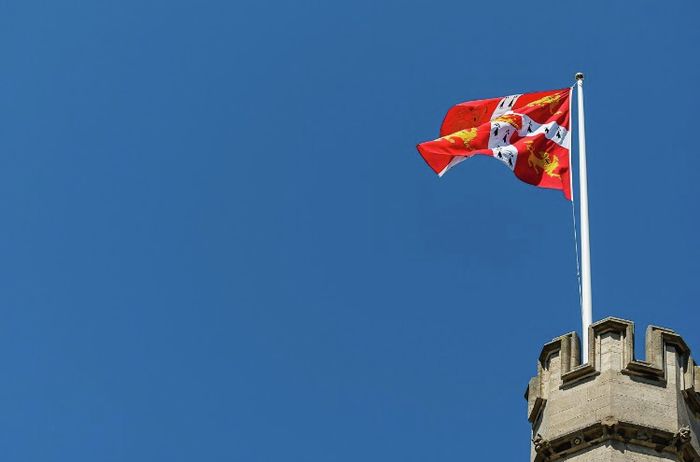‘Tick it to change it’ campaign to encourage participation in Black British Voices survey
The survey constitutes part of the Black British Voices Project , which has worked in partnership with the University’s Department of Sociology to create ‘the first comprehensive enquiry of black people in Britain’

A new advertising campaign, entitled “Tick it to change it”, has been launched to promote survey contributions towards the ongoing Black British Voices Project (BBVP).
The survey aims to be the first comprehensive national study into the Black British experience, and seeks to “build understanding, drive change, increase prosperity, improve policy, overcome obstacles and maximise participation in key institutions and professions.”
It will explore themes such as identity, media representation, politics and health, and will assess the ways that Black British identities and communities have changed over time.
The ad campaign was launched by The Voice newspaper, the only Black British newspaper operating in the UK, and a partner in the BBV project.
The adverts were created by the M&C Saatchi Group, and they depict Black leaders within different fields, such as teaching and business, alongside an image of a ‘tick’. They represent the ways in which participation in the survey can lead to important changes, such as diversifying workplaces and decolonising the curriculum.
Paula Dyke, senior manager of corporate affairs and communications at The Voice and key figure in the BBV project, highlights how the advertising campaign reinforced the sentiments found in the focus groups held prior to the survey.
She said:“Working with M&C Saatchi, we’ve created a campaign that reflects what so many in our focus groups told us – that black people want to engage with a positive movement and come together to effect significant change in British society.”
The University of Cambridge’s Department of Sociology and black-led consultancy group I-Cubed are also partners in the project.
Dr Kenny Monrose, a member of the Department of Sociology, is the Principle Investigator of the project. He conducted focus groups at the end of last year, which have formed the basis of the survey.
Other members of the department are also involved in the project, including Professor Sarah Franklin, who is the Project Coordinator at Cambridge.
In addition to the public survey, the project will also include in-depth interviews with leading black British figures, including journalists, businesspeople, politicians and celebrities.
Monrose acknowledges the changes to discussions of race over the past few decades, and how this has been driven by the unique experience of young Black people.
He claims, “Young people are more comfortable having uncomfortable conversations about race, and that is hugely important.”
The increased use of the term BAME, (an acronym for Black and Minority Ethnic) was discussed in early focus groups. Monrose criticised the term, stating that it was “another in a parade of imposed labels” and that it created a false impression that Black people were a “standardised or uniform group.” One participant stated that “Terms like BAME are too shorthand, too easy, and make us even more invisible.”
SU BME Officer Tara Choudhury echoed these sentiments in a statement to Varsity.
“Even as the SU’s ‘BME’ Officer, I’m of the opinion lumping together ethnic minorities under broad labels like BME isn’t always the most productive course of action so I’m excited to see a project that will capture the specificities of Black British identity.”
She went on to state that the survey had “the potential to be really insightful and transformative”, and that she would be keen to use the findings to “better represent and advocate for Black British students at Cambridge.”
“Whether the survey itself will be enough to pressure the University to adopt anti-racist policies is yet to be seen,” she added. “However I’m confident the University won’t miss such a big opportunity to learn from this ground-breaking research.
“I would encourage as many Black students as possible to get involved with this project by filling out the survey.”
The Department of Sociology is also involved with other projects that promote racial justice. It supports the End Everyday Racism Campaign, led by Dr Mónica Moreno Figueroa and Dr Ella McPherson, and it has its own active Decolonise Sociology committee, led by Dr Ali Meghji.
In an interview conducted last year, the head of the Department, Dr Manali Desai, advocated for the continued involvement of the department in ongoing movements outside of academia.
“We need to carry on doing the engaged, deep research that all of my colleagues are doing so well. I would like to see us communicate this research to the wider public, and be a strong advocate for public sociology.”
The online survey contains 100 different questions across 16 different key topics. The findings of the project will be published in an online report at the end of 2021.
Varsity has approached the University for comment.
 Comment / Plastic pubs: the problem with Cambridge alehouses 5 January 2026
Comment / Plastic pubs: the problem with Cambridge alehouses 5 January 2026 News / Cambridge academics stand out in King’s 2026 Honours List2 January 2026
News / Cambridge academics stand out in King’s 2026 Honours List2 January 2026 News / Cambridge businesses concerned infrastructure delays will hurt growth5 January 2026
News / Cambridge businesses concerned infrastructure delays will hurt growth5 January 2026 News / AstraZeneca sues for £32 million over faulty construction at Cambridge Campus31 December 2025
News / AstraZeneca sues for £32 million over faulty construction at Cambridge Campus31 December 2025 Interviews / You don’t need to peak at Cambridge, says Robin Harding31 December 2025
Interviews / You don’t need to peak at Cambridge, says Robin Harding31 December 2025









